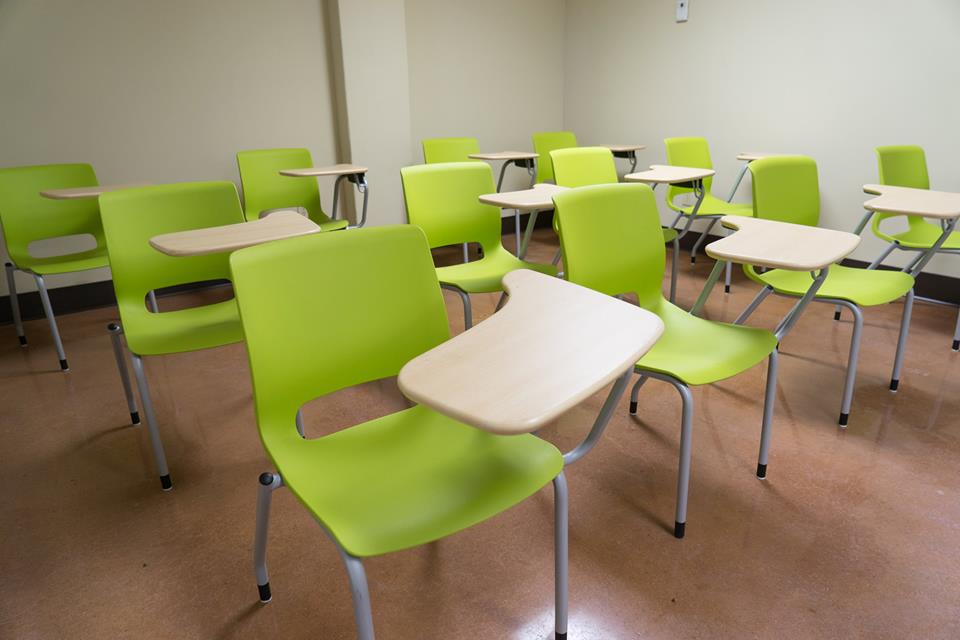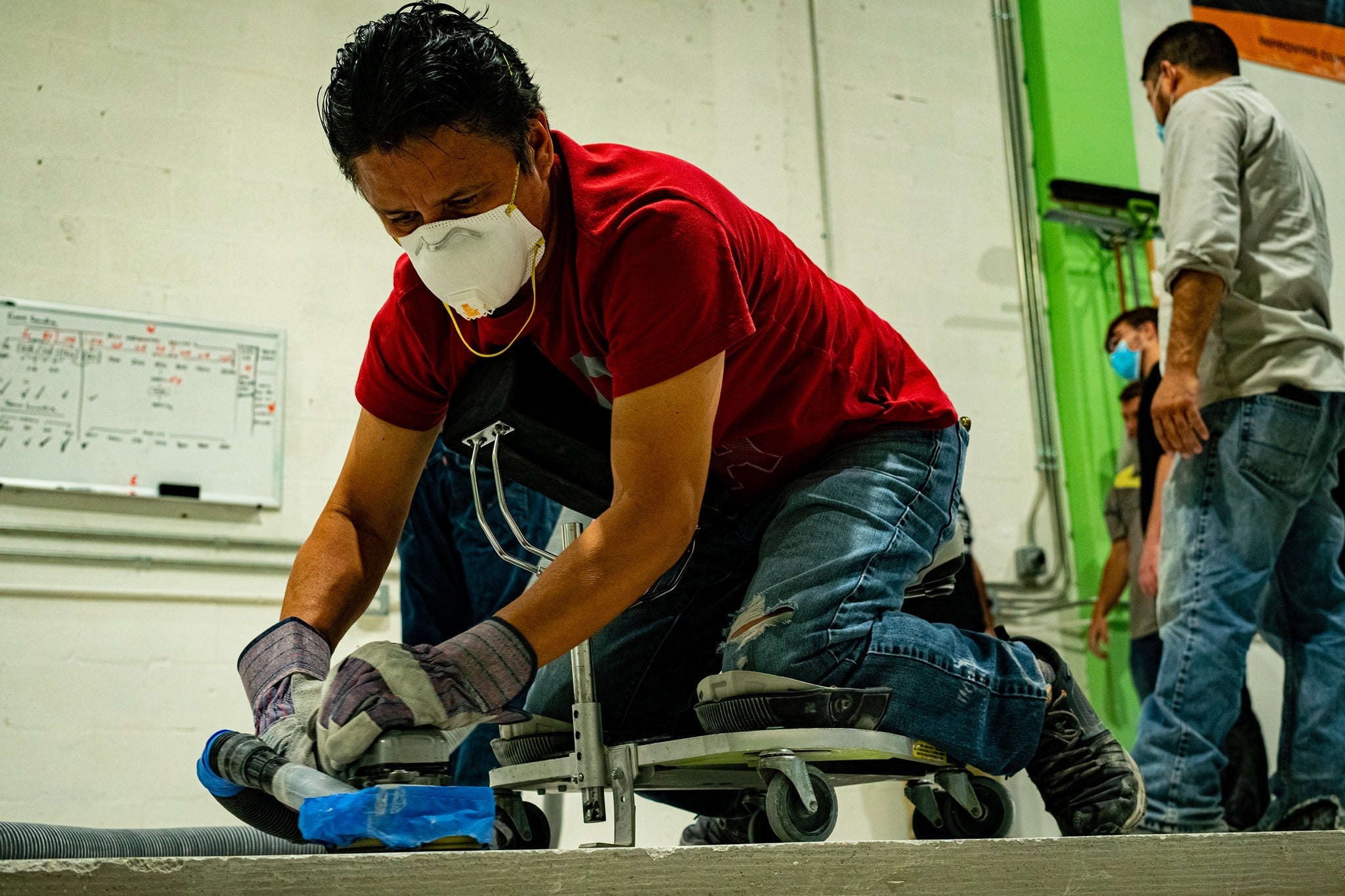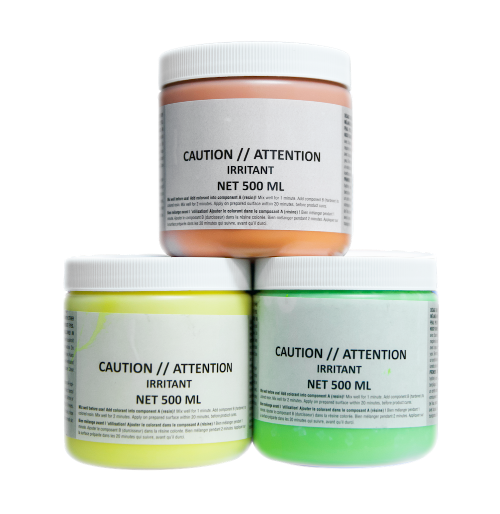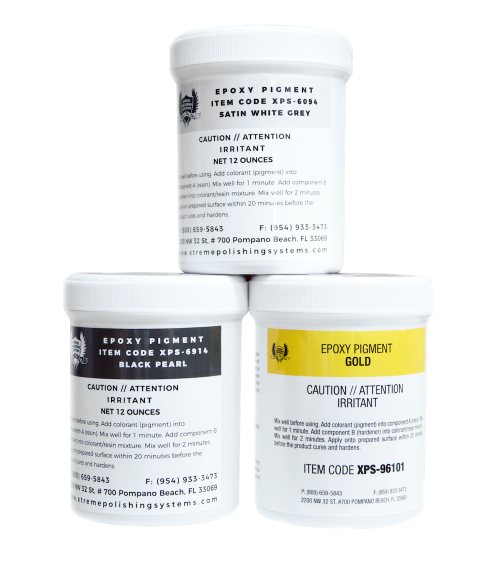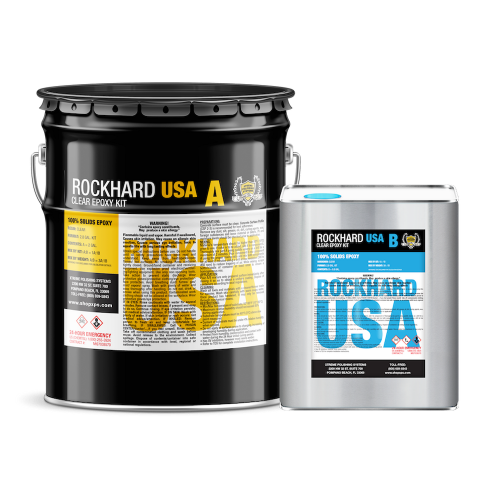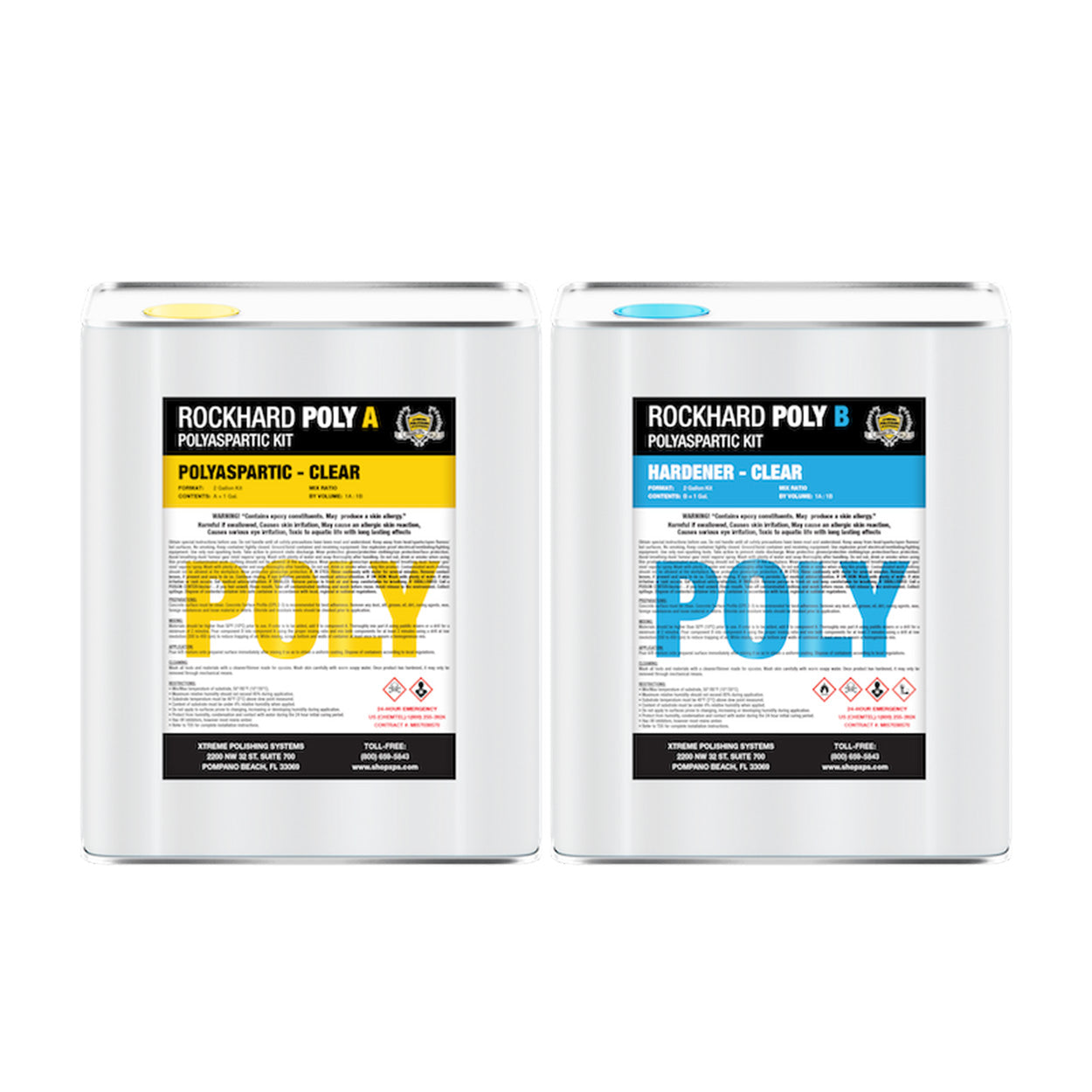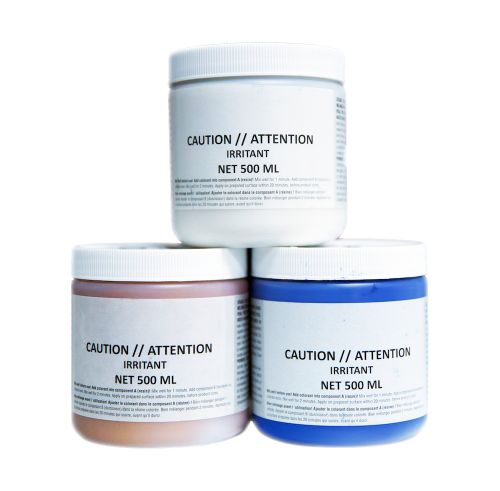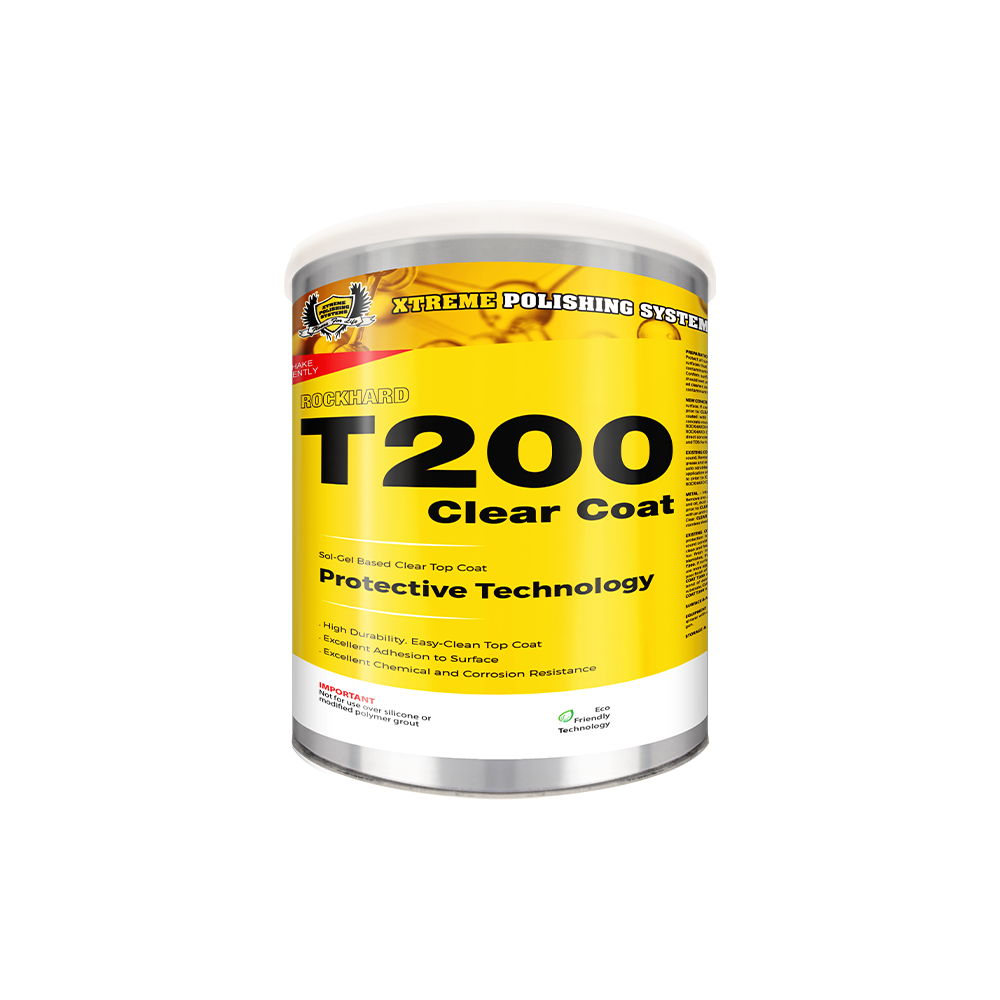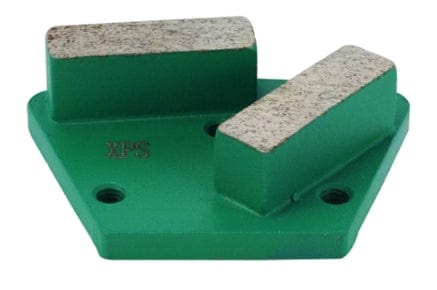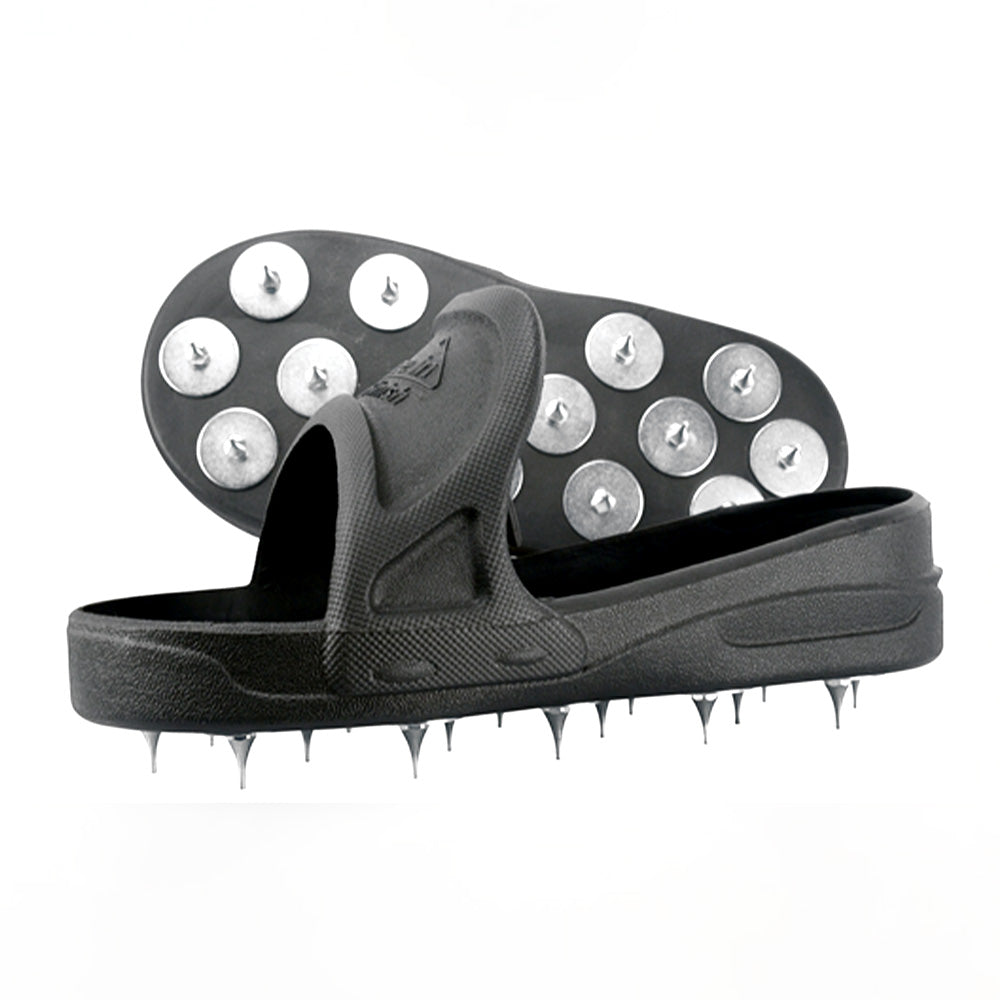It is inevitable, however, that certain occurrences such as heavy foot traffic, continuous erosion, and regular wear-and-tear will fade or dull the appearance of concrete surfaces in due time. As a result of such predestined events, there was major anticipation for the discovery of new and sustainable methods for refinishing concrete which, in turn, completely elevated the industry for concrete surface applications.
What is Decorative Concrete?
Decorative concrete is a newer discovery for concrete refinishing applications. Simply put, decorative concrete is a method for aesthetically enhancing concrete surfaces, without the use of floor covering materials such as cement overlayments, concrete coatings, and micro-topping systems.
Essentially, the transformation method for achieving decorative concrete finishes is considered to be a unique method when compared to others. Instead of just simply masking the concrete surface, or covering it up, this process fully utilizes the concrete material itself.
In addition, there are definitive options available in the market today for decorative concrete products, specialty equipment, and tooling. These revolutionary options have precisely been innovated for the consumer who is seeking complete beautification of their concrete surfaces.
Decorative Concrete Applications and Finishing Options
Common applications for decorative concrete finishes are used in both interior and exterior environments, including residential, commercial, and industrial. Exterior decorative concrete typically includes driveways, patios, garages, pool decks, and sidewalks while interior decorative concrete includes showrooms, foyers, main lobbies, bedrooms, hallways, and living rooms.
Thanks to the continuous advancements that are achieved in producing concrete equipment, decorative concrete finishes are not as complicated to achieve as one may think. Convenience is ideal in high-demand industries such as concrete refinishing. It is critical that a decorative concrete finish is stabilized and supported with the highest quality and performance. Spray equipment is certainly a key component to have equipped within your arsenal of tools when choosing to apply professional decorative concrete finishes.
There is a profound selection of decorative concrete finishing options that exist today, including concrete staining, dyeing, stamping, and engraving. The most predominant of the finishes mentioned are concrete staining and concrete dying surface applications.
The Benefits of Decorative Concrete
Decorative concrete may provide you with something new and different that is simple to maintain, extremely robust, and long-lasting. More specifically, decorative concrete offers the following benefits:
- Resurfacing Solution: You or a hired contractor can install decorative concrete finishes in your humble abode instead of pulling out existing concrete flooring and replacing it with something completely new. Not only will you save a lot of time, but you will also avoid a major mess.
- Applications: Decorative concrete finishes are the right answer for whatever surface you try to enhance at your home. Countertops, floors, pool decks, driveways, patios or porches, walls, pathways, fireplaces, and the list goes on, may all be entirely transformed.
- Resistance: Most concrete surface applications are impact, stain, abrasion, and foot/ vehicle traffic resistant. However, the degree of resistance varies depending on the product you select for your project.
- Customization: Another advantage is the option to modify the appearance of your new surface. A professional and properly installed application may produce cutting-edge finishes that are absolutely stunning masterpieces exclusively for you.
Decorative Concrete Chemicals: Dyes and Stains

Concrete dyes and concrete stains are chemical-based products specially formulated to produce aesthetic finishes such as vibrant colors and earth tones on concrete surfaces. You can use concrete stains or dyes to emphasize the color of these sprayed-on concrete applications, which can be tinted or integrally colored.
There are a few important factors to consider when coloring concrete floors with decorative stains or dyes. It is ideal that you first distinguish which type of concrete surface you have to work with while choosing the distinct pigmentation you are trying to achieve. Also, you want to determine the water content of the product you choose for the initial application as well as learn how to mix that substance properly.
By taking these important first steps you are able to ensure you have the ultimate support so that you can adequately achieve a beautifully decorated concrete surface finish.
Understanding the Difference; Concrete Dyes vs. Stains
Before you can choose how you want to decorate your concrete surfaces, you must first understand the difference between each of these techniques. Concrete stains are formulated to react chemically with concrete surfaces, while concrete dyes are simply non-reactive.
In addition, concrete stains are designed to alter the color of the concrete permanently, while concrete dyes penetrate the concrete pores to create a uniform appearance. Concrete dyes also can be permanent, however, they do not chemically alter the color of the concrete surface as stains do. Ultimately, concrete stains are irremovable, while concrete dyes can be re-dyed or re-colored over and over again.
Spray Equipment: Hand-Held Pump Sprayers

One of the best ways to apply your chemical compounds onto a concrete surface is by spraying them. Applying color, sealers, stains/dyes, and other chemicals is oftentimes best accomplished with a professional pump sprayer. Although some sprayers are better than others, it is often the case that a good quality industrial sprayer will not only do a great job but can last an awfully long time.
When it comes to applying stains or dyes to concrete surfaces, you are going to want more flexibility, speed, and control. With that, hand-held pump sprayers are equipped with adjustable nozzles that allow either fine mist spray application with high pressure or soft sprinkling or streaming action under low pressure.
Furthermore, only a little spring, which may get replaced, is prone to acid corrosion. Even better, hand-held pump sprayers are usually widely available. Plus, if you clean up the water after each usage, a single spring can last numerous tasks.
XPS Concrete Product Supply: Pumps, Sprayers, Applicators
One of the most important factors to consider when selecting a pump sprayer is chemical compatibility. As many of the products and materials used in decorative concrete applications are toxic, corrosive, and volatile, you want to make sure that the initial product design is built for the chemical compounds it’s being used with like acids, solvents, and acetone for example.
Xtreme Polishing Systems is a leading concrete product supplier and provides a professional selection of pumps, sprayers, and applicators. Our pump sprayers are used by professionals and do-it-yourselfers alike simply because these products are made precisely for the surface preparation process prior to decorative concrete applications. Our pump sprayer devices are industrial-grade and built to generate both high and low pressure to drive spray fluids efficiently from the fluid storage tank and through a spray nozzle.
Furthermore, our pump sprayers provide the durability and versatility necessary for working on the job site. Our spray equipment can be used for concrete flooring projects in any setting whether it be residential, commercial, or industrial. Boost productivity, reduce physical efforts, and lower labor costs with our quality pumps, sprayers, and applicators.
Nonetheless, the experts at Xtreme Polishing Systems have to warn those working with chemical substances like stains, dyes, and sealers about the risk factors involved. It is very important that you only use applicators that do NOT have any metal components and you should ensure they are absolutely resistant to hydrochloric acids. All sprayer parts should also be made of acid-resistant plastic. If an applicator brush is decided to be used during the application process, it too should have acid-resistant nylon bristles.
Introducing the Best Acetone Pump Sprayer for Decorative Concrete Applications
Swissmex Acetone Pump Sprayer is a lightweight compression sprayer designed with acetone-resistant parts which makes it an ideal tool for applying acetone and acid-based concrete stains and dyes. This proficient sprayer is designed for decorative concrete applications as well as graffiti removal and surface cleaning.
Best of all, this pump sprayer produces better results without leaving distinguishable spray patterns. With chemical stains, it’s sometimes necessary to gently scrub or massage the stain into the surface using a bristle brush of medium stiffness immediately after spray application. For detail work or small areas, you can also use a hand spray bottle, brushes in various sizes, sponges, and rags.
Product Specifications

The “no-drip” spray tip is specially designed not to leak, ensuring you get consistent, even coverage with no unsightly drip spots left behind on the surface. The durable, heavy-duty polyethylene tank is nearly indestructible, so dents, chips, or cracks are the least of your worries. This pump sprayer is treated with UV inhibitors to guard against UV exposure, which is important when working outside. The tank is transparent, allowing you to easily monitor liquid levels. Refilling the sprayer is made easy with the wide mouth design, which makes pouring liquid easier and not as messy.
This sprayer can be easily pressurized using the hand pump at the top of the unit. It also features a tire valve, so it can be pressurized by a compressor. At 42 PSI, the pressure relief valve activates to prevent over-pressurization. This sprayer also features a shut-off valve with a filter and a locking pin for continuous spraying. It also features a trigger lock, which prevents accidental discharge. Once the job is complete, this sprayer drains from the bottom, allowing you to completely empty the unit. The high-performance pump provides enough pressure to empty the tank with two sessions of 40 full strokes and comes with an 18″ angled brass spray wand with a compartment for an optional secondary filter and a 4-foot professional-grade chemical-resistant hose. The hose features a steel spring that prevents it from deforming. The pump assembly is easily repairable.
Needless to say, the Swissmex Acetone Pump Sprayer is the best fit when searching for an applicator tool that is versatile, sustainable, and cost-effective.
Decorative Concrete Properties
When compared to standard poured concrete, decorative concrete has some distinct and superior characteristics. However, the qualities obtained differently are due to the various mixing, transporting, and positioning procedures that may be used rather than the component materials.
With that, here are the major properties of decorative concrete spraying applications relative to specific factors:
- Water Cement Ratio – The water-cement ratio in decorative concrete is lower than in traditional poured concrete. This finishing option is more common in the dry process when a lower water-cement ratio prevents sagging. In the context of a wet process, a plasticizer gets used to achieve this low value of the water-cement ratio.
- Overall Strength – Decorative concrete can achieve higher compressive strength at a way earlier stage using a lower water-cement ratio. Plus, applying chemicals at a higher velocity will compact the sprayed concrete mass. As a result, compaction tends to strengthen the material. Rapid strength increase gets achieved by using batched materials. Decorative concrete is said to have a 30 percent better strength than poured concrete.
- Density and Permeability – The high-velocity application, as previously stated, use the compaction of the mix. The mix becomes dense and void-free as a result of this compaction. The permeability of the sprayed concrete structure will get reduced as a result.
- Freeze and Thaw Resistance – With an increase in permeability, the problem of freezing and thawing arises. With a strong impermeability quality, decorative concrete makes buildings resistant to freezing and thawing problems. This option will aid in crack formation and propagation mitigation. Because of its waterproof property, it has greater abrasion resistance. Ultimately, fiber-reinforced concrete will improve the resistance qualities of decorative concrete.
- Adhesion and Bond Strength – The surface tension and bonding of the sprayed concrete with the substrate are improved. Except in specific circumstances, this feature of sprayed concrete will reduce bonding chemicals or coatings.
- Decorative Concrete Thickness – Because of the fluidity of decorative concrete, it can get sprayed at a higher rate and volume. Moreover, you can spray tunnel or retaining wall linings with lining mass right after excavation.
Conclusion
Decorative concrete systems, more specifically, hand-held pump sprayers, are versatile and simple to use, with various finish possibilities. They are commonly utilized for concrete refinishing purposes to instill slip-resistant decorative finishes.
When choosing a sprayer make sure you are getting good value, versatility, solid construction, and product durability. The last thing you need is to mess up and install due to a bad or broken sprayer.
Choose your sprayer carefully and always make sure you invest in good quality sprayers that will last. The outcome of a project is often the by-product of quality tooling and equipment. Have replacement parts handy and always take care of your sprayers by keeping them clean and removing chemical compounds from them when not in use.


